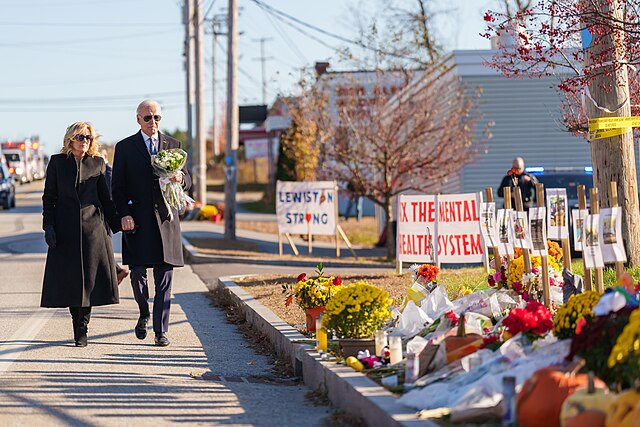In a damning report released nearly ten months after a tragic mass shooting in Lewiston, Maine, an independent commission revealed significant failures by both the U.S. Army Reserve and local law enforcement that may have contributed to the deadly incident.
The report scrutinizes the actions-or lack thereof-taken by various agencies in the months leading up to the October 25, 2023, attack, which left 18 people dead and 13 others wounded. The gunman, 40-year-old Robert Card, was an Army reservist whose deteriorating mental health had raised numerous red flags that were not adequately addressed by those responsible for his care and supervision.
The commission, which was established by Maine Governor Janet Mills in the wake of the shooting, found that both the Sagadahoc County Sheriff's Office (SCSO) and Card's Army Reserve unit missed several critical opportunities to intervene. These lapses, according to the commission, could have potentially altered the course of events and prevented the massacre. While the report underscores that Card alone was responsible for the attack, it also highlights a series of systemic failures that contributed to the tragedy.
One of the most glaring failures identified by the commission was the response-or lack thereof-by Card's Army Reserve unit. Despite being aware of his increasingly erratic behavior, including auditory hallucinations and aggressive tendencies, the unit failed to take necessary precautions. The commission's report pointed out that Card's commanding officers ignored strong recommendations from mental health professionals to remain engaged with his care and to remove weapons from his possession. This oversight, the report suggests, allowed Card to retain access to firearms, including semi-automatic weapons, which he later used in the attack.
"The leaders of his Army Reserve unit failed to exercise their authority over him and to undertake necessary steps to reduce the threat he posed to the public," said Dan Wathen, chair of the independent commission, during a press conference. Wathen emphasized that the Army Reserve had the ability to store service members' personal firearms, a measure that could have prevented the tragedy but was never implemented.
The report also criticized the Sagadahoc County Sheriff's Office for its handling of a welfare check conducted just weeks before the shooting. According to the commission, the SCSO had sufficient probable cause under Maine's "yellow flag" law to take Card into protective custody and initiate the confiscation of his firearms. However, the deputy who conducted the welfare check chose not to take further action when Card refused to answer the door. The commission noted that while Maine's "yellow flag" law can be cumbersome, it remains a crucial tool for preventing such tragedies, and its proper use could have made a difference in this case.
In its final recommendations, the commission called for a full after-action review of the incident by an independent entity with expertise in policing. This review, the commission suggested, should focus on identifying policy and protocol improvements that could help prevent similar incidents in the future. The report also urged the military to improve communication and coordination with civilian law enforcement agencies, especially in cases involving service members with known mental health issues.
The release of the report has reignited calls for accountability from the families of the victims, who have long demanded a more thorough investigation into the failures that led to the shooting. Ben Gideon, a lawyer representing some of the survivors and relatives, emphasized the need for real accountability in the wake of the commission's findings. "The next step in this process needs to be real accountability," Gideon said, hinting at the possibility of forthcoming lawsuits against the responsible agencies.
Card's family, who had previously expressed concerns about his mental health to both the Army and local law enforcement, also raised questions about the long-term impact of his military service on his mental state. They have suggested that his years of exposure to low-level blasts as a hand grenade instructor could have contributed to a traumatic brain injury, a claim the military has denied in its internal investigations.




